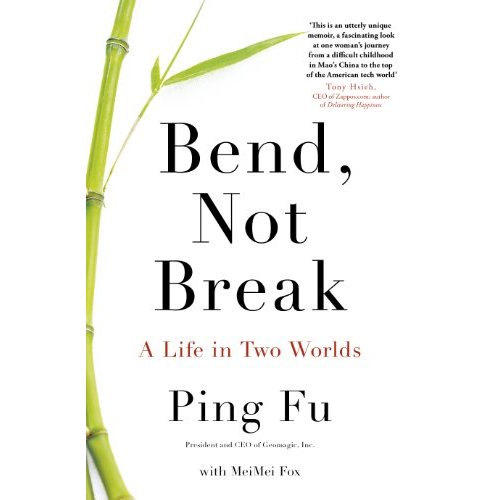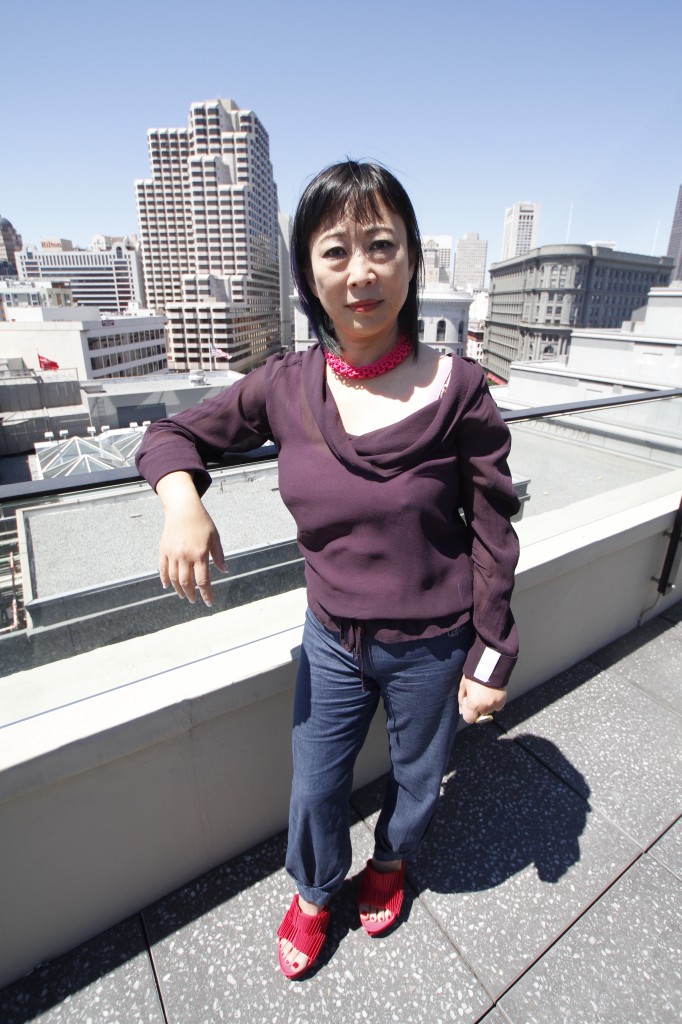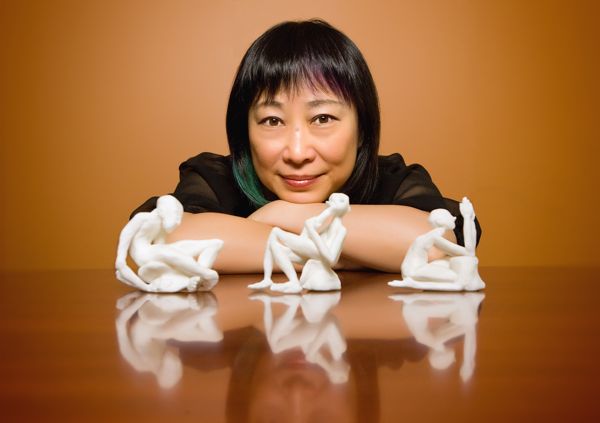I first met Ping Fu when she gave a talk at a Singularity event in Silicon Valley last summer. I wasn’t attentive during her entire talk until about a third the way through when suddenly I was drawn into the personality of the woman in the front of the room. It took me a moment to realize we were talking about the world in 3D since it wasn’t her topic that drew me in at first, but her energy…her calm, quiet energy.
Was she really wearing pink plastic shoes I thought? Not only was that the case, but they were printed from a 3D printer and she had a matching handbag and iPhone case as well.
I decided I had to meet her and after a few moments of chatting in the back of the room while the evening was winding down, I found myself asking to photograph her for a “photo book” I’m working on and so, we quickly exchanged cards and weeks later, I was at her San Francisco-apartment with my Canon 7D.
Greeting me with that same calm energy that initially drew me in, I still didn’t have much history on Ping’s life, nor did I know she was tortured as a political prisoner in China years before.
Here I was snapping away at this woman of great resolve without knowing her life’s pains and battles. We were on her roof and the buildings of San Francisco were behind us, beyond us….she was calm as she greeted me and continued that resolve throughout the shoot in a way that put me at peace and made me smile on more than one occasion.
The wind was blowing and she fell into various poses I asked despite the fact that they weren’t all that comfortable or frankly, safe given the height of the building.
Finally, we started talking and little by little, I learned of her past. I learned of her world as CEO and President of Geomagic. Nothing however could have prepared me for what I was about to learn a few months later when Ping shipped me an early version of her book, Bend Not Break, which is now available from Amazon, released on December 31, 2012.
When things arrive on my doorstep from someone who jolts me, as Ping had done with me on both occasions, I take it as a sign from the universe that there’s something more to know, in this case, something beyond what I first heard when she began her speech that one evening in Santa Clara, California.
I flipped through the book when it arrived and came across this excerpt, “Bamboo is flexible, bending with the wind but never breaking, capable of adapting to any circumstance. It suggests resilience, meaning that we have the ability to bounce back even from the most difficult times. . . . Your ability to thrive depends, in the end, on your attitude to your life circumstances. Take everything in stride with grace, putting forth energy when it is needed, yet always staying calm inwardly,” a quote from her “Shanghai Papa,” a man she lived with for part of her childhood in China.

I knew at once that this wasn’t just another book on business entrepreneurship and lessons learned and immediately dug into the 274 pages which would leave me speechless. For several nights, I flipped through a beautifully authentic tale of her life with tears in my eyes, unable to comprehend the wounds she must have had to shed to become the dynamite, successful woman leader she is today.
 She draws parallels to the lessons she learned from her grandfather to decisions she made in business at Geomagic, particularly in the early days. A bad contract can be a good decision she writes. During a tragic time in her company’s history, when they didn’t have the finances to last another week, she signed a contract that wasn’t a good ‘financial’ deal for her company.
She draws parallels to the lessons she learned from her grandfather to decisions she made in business at Geomagic, particularly in the early days. A bad contract can be a good decision she writes. During a tragic time in her company’s history, when they didn’t have the finances to last another week, she signed a contract that wasn’t a good ‘financial’ deal for her company.This was my aha moment. State-of-the-art 3D appliances, such as 3D scanners and 3D printers, already existed. If we offered software that could take the data from 3D scanners, process it, and output it on 3D printers, our new company could do in three dimensions for desktop fabrication what Adobe had done for desktop publishing in two dimensions. My head spun with possibilities.”
That aha moment became her vision, her destiny, her calling as an entrepreneur. She says, “I could see where it came from—the depths of my subconscious. For the first time since volunteering to create a business, I felt confident that I could actually do it because I had found my reason why.”
That vision led to endless possibilities and to the success of Geomagic today, a company which has reshaped the world on multiple levels, from creating personalizing prosthetic limbs to repairing NASA spaceships.
Bend, Not Break is a must read for anyone who leads a company or wants to. It is a must read for anyone who has faced obstacles and struggled with their “why’s” in life. It is a must read for all women and anyone who considers themselves an “underdog.”
It’s a must read for people who say “I can’t,” or have been told “they can’t” as there is no room for “can’ts” in the world Ping Fu has created.
Her telling story is a tribute to one woman’s courage in the face of cruelty and a valuable lesson on the enduring power of strength and resilience.

Renee Blodgett is the founder of We Blog the World. The site combines the magic of an online culture and travel magazine with a global blog network and has contributors from every continent in the world. Having lived in 10 countries and explored over 90, she is an avid traveler, and a lover, observer and participant in cultural diversity. She is also the founder of the Magdalene Collection, a jewelry line dedicated to women’s unsung voices and stories, and the award-winning author of the bestselling book Magdalene’s Journey
She is founder of Blue Soul Media and co-founder of Blue Soul Earth as well as the producer and host of the award-winning Blue Soul CHATS podcast, that bridges science, technology and spirituality. Renee also founded Magic Sauce Media, a new media services consultancy focused on viral marketing, social media, branding, events and PR. For over 20 years, she has helped companies from 12 countries get traction in the market. Known for her global and organic approach to product and corporate launches, Renee practices what she pitches and as an active user of social media, she helps clients navigate digital waters from around the world. Renee has been blogging for over 16 years and regularly writes on her personal blog Down the Avenue, Huffington Post, BlogHer, We Blog the World and other sites. She was ranked #12 Social Media Influencer by Forbes Magazine and is listed as a new media influencer and game changer on various sites and books on the new media revolution. In 2013, she was listed as the 6th most influential woman in social media by Forbes Magazine on a Top 20 List.
Her passion for art, storytelling and photography led to the launch of Magic Sauce Photography, which is a visual extension of her writing, the result of which has led to producing six photo books: Galapagos Islands, London, South Africa, Rome, Urbanization and Ecuador.
Renee is also the co-founder of Traveling Geeks, an initiative that brings entrepreneurs, thought leaders, bloggers, creators, curators and influencers to other countries to share and learn from peers, governments, corporations, and the general public in order to educate, share, evaluate, and promote innovative technologies.









